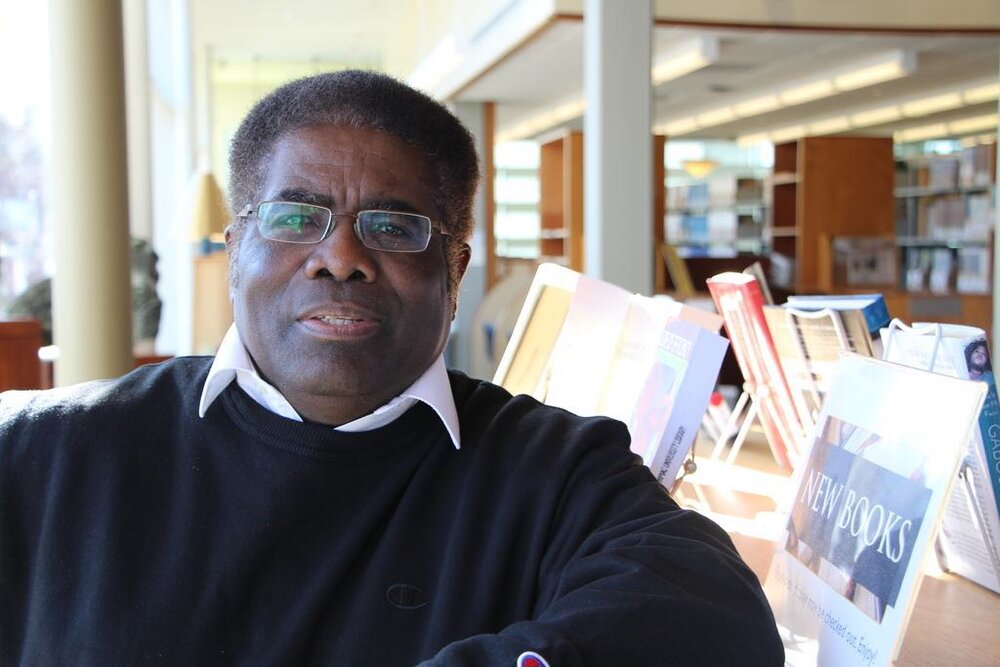
Patrick Harewood, pictured, is an adjunct professor of biomedical sciences at Quinnipiac University. Courtesy: John Morgan
Patrick Harewood, an adjunct professor at Quinnipiac University, received a patent for his mouthwash that combats Xerostomia on Jan. 7. Xerostomia is a health condition that is also known to many as dry mouth. This condition occurs due to a lack of saliva production from one’s salivary glands.
Harewood earned his bachelor’s degree in natural sciences at the University of the West Indies in Barbados. He then attended the University of Rhode Island to obtain his masters and doctorate degrees.
His studies at the University of Rhode Island in the master’s program centered around food and nutrition. He would go on to complete his doctorate in biological sciences.
Harewood, who has been a professor at Quinnipiac for nearly twenty years, was first approached about the mouthwash creation process several years ago. As Harewood’s son was in for a routine check-up, Dr. Jeralyn Fantarella, his primary dentist, approached him about his father’s educational background in microbiology and food chemistry. Harewood himself also spent about a year and a half doing research with the Food and Drug Administration.
It was not an easy process for Harewood and Fantarella. Most of their work was done in various dental hygienists’ rooms. Bouncing from room to room, they ordered the necessary lab equipment and developed their product at Fantarella Dental Group in North Haven.
When asked about the driving force of this invention, Harewood speaks about how he was able to get the ball rolling.
“Dr. Fantarella had noticed an upsurge in the number of people visiting her office who had this condition of dry mouth,” Harewood said.
Harewood also highlighted the importance of saliva and how his mouthwash will benefit consumers when it hits the market.
“In addition to containing enzymes which play a role in the digestion of food, [saliva] also contains antimicrobial components along with enzymes, which destroy bacteria associated with tooth decay,” he said.
Harewood and Fantarella will be going through the process of approval through the FDA. This process entails areas of overview such as device performance, health risks, a summary report, and biocompatibility results. For more information on the FDA and their oral rinse approval guidelines, click here.
Approval from the FDA for certain products differs based on its uses. Some commonly used mouthwash products may never actually need to be approved by the FDA.
“There are some mouthwashes on the market that do not have to go through the regulatory process because they are just used for simple things like to freshen breath,” Harewood said.
“If all goes well, (the mouthwash) should be approved as an over the counter drug,” he continued. “It should probably take, if all goes well, about three months to a year to be approved.”
Harewood teaches courses at Quinnipiac revolving around biomedical sciences, specifically in the field of biomedical marketing. He encourages his students to build off of what he has accomplished.
“I hope people can see me and my work as a source of inspiration,” he said. “If I can do it, they can do it too.”